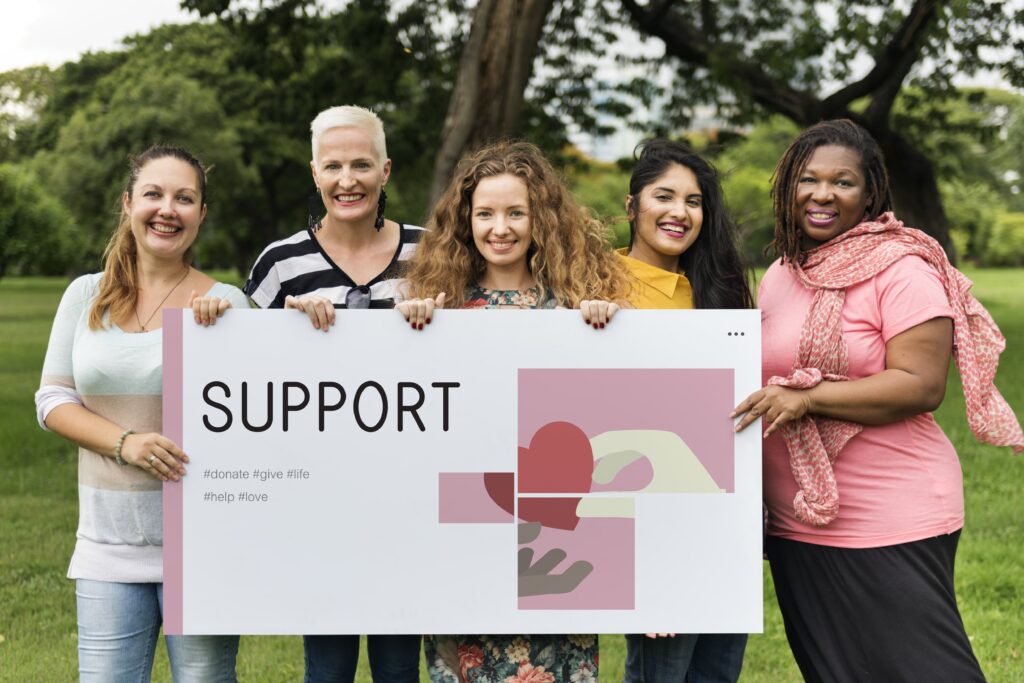What is Peer Support and How Can it Help in Addiction Recovery?

Peer support involves individuals offering assistance to others who are facing similar situations or challenges, drawing on their own experiences and insights to provide guidance and encouragement. This support can manifest in various forms, including emotional, social, and practical help.
Within the context of addiction recovery, peer support usually denotes the aid given by individuals who have successfully navigated the journey to sobriety and are free from substance dependency.
Typically, those who overcome addiction achieve this milestone through professional treatment programs, such as those offered by a luxury rehab California. These individuals become valuable mentors or supportive allies for others who are still battling addiction, guiding them on their journey to recovery.
What is Peer Support?
An essential characteristic of peer support is that there is no hierarchy among peers, that is, people who share something significant in common – in this case, problems with addiction. People relate to each other as equals.
Those with long years of abstinence and sobriety are not seen as having higher status in any way. Support groups such as 12-step groups are a well-known example of peer support, and they say that:
The newcomer is the most important one among us.
This is because peer support is mutual – “old-timers” benefit from contact and interaction with those in the early stages of their path to wellness.
This, of course, doesn’t mean people cannot offer guidance or advice, or even play the role of mentors. On the contrary, this is one of the greatest merits of peer support.
The idea that “the therapeutic value of one addict helping another is without parallel” is a core principle of the Narcotics Anonymous fellowship. Those who have been able to escape the grip of addiction are best placed to help others facing an identical predicament.
People still caught in active addiction are most likely to respect peers who have demonstrated recovery is possible, and are “walking the talk,” as role models.
Another essential aspect of peer support is providing a space where people can feel unconditionally accepted, and know that they are understood. They can feel safe with their peers, and need not pretend to be anything they are not.
Privacy is protected, as is anonymity – things discussed or shared among peers remain within that circle. If you don’t know how and where to find peer support in your recovery journey, luxury rehab California can provide guidance in this regard.
Types of Peer Support in Recovery
Peer Support Workers
In formal settings, such as clinics or recovery centers, a structured form of peer support exists in which those in recovery benefit from the presence of a peer support worker. These are people who share the history of addiction of the person or people they work with, but have received training in how best to support individuals. However, this does not make them qualified mental health professionals or clinicians. Based on a person’s needs, stage of their recovery journey, family situation, and so on, support workers can be anything from a counselor to a compassionate shoulder to lean on. Peer support workers work both one-to-one and in group settings.
Support Groups
These groups, mentioned above, are the most common form of peer support in the US, and help millions of people in recovery daily. Support groups meet to discuss addiction and the path to freedom from addiction. Meetings are in person or, increasingly recently, online. Participants are invited to share openly about their struggles or anything related to addiction. The aim of these groups is to help people achieve and sustain a life free of substance abuse.
Group Activities
Support groups create a strong sense of community for those who regularly attend, and indeed,12-step communities are commonly known as fellowships. Many people suffering from addiction have forgotten how to engage in normal social activities or attend social functions – such meals in restaurants, celebrations, or parties – without using alcohol or drugs. Others have become so used to isolating in order to escape society and use drugs, that simply engaging in shared activities with other human beings is a skill they have to re-learn. Hikes, bike rides, dinners, excursions, and so on are all things regularly organized by members of support groups outside of meetings. This provides precious companionship and encouragement to those in early recovery.
Individual Support
Peer support can also be simple things, like a sober person going to the aid of a peer in active addiction facing a crisis. Mentor-mentee relationships are common among peers. In 12-step groups, the role of a sponsor is to guide newcomers, or those wanting to renew their commitment to their recovery process, through the steps “suggested as a program of recovery.”
How Peer Support Can Help in Addiction Recovery
There are a number of ways in which peer support can make a huge difference to individuals recovering from addiction. Peer support:
- Helps them speak freely and open up, without fear of judgment, and without shame or guilt.
- Shows them that they are not flawed or abnormal human beings, that they simply have a mental health condition which their peers have also faced, and emerged from. It also tells them they need not struggle unaided.
- Reassures them they are not alone in how they feel.
- Encourages them to acknowledge their strengths and qualities.
- Helps build their self-esteem and self-confidence.
- Helps people connect with others – isolation is a major symptom of addiction – and find a sense of belonging.
- Introduces people to new approaches to recovery that others have found helpful and have proven to be effective.
- Helps people feel more positive, and see a light at the end of the tunnel.
- Encourages people to be regular and to keep coming back to connect with their peers.
- Helps people strengthen their recovery and sobriety through community, thanks to the principle of the whole being greater than the sum of its parts.
Peer support has proven highly effective as a form of nonclinical assistance to people suffering from drug or alcohol addiction. It is not a treatment, nor a course of therapy, but for many, peer support becomes an integral part of their lives. For more insight into maintaining sobriety and a healthy lifestyle, you may find resources like how to meditate for healing helpful.






